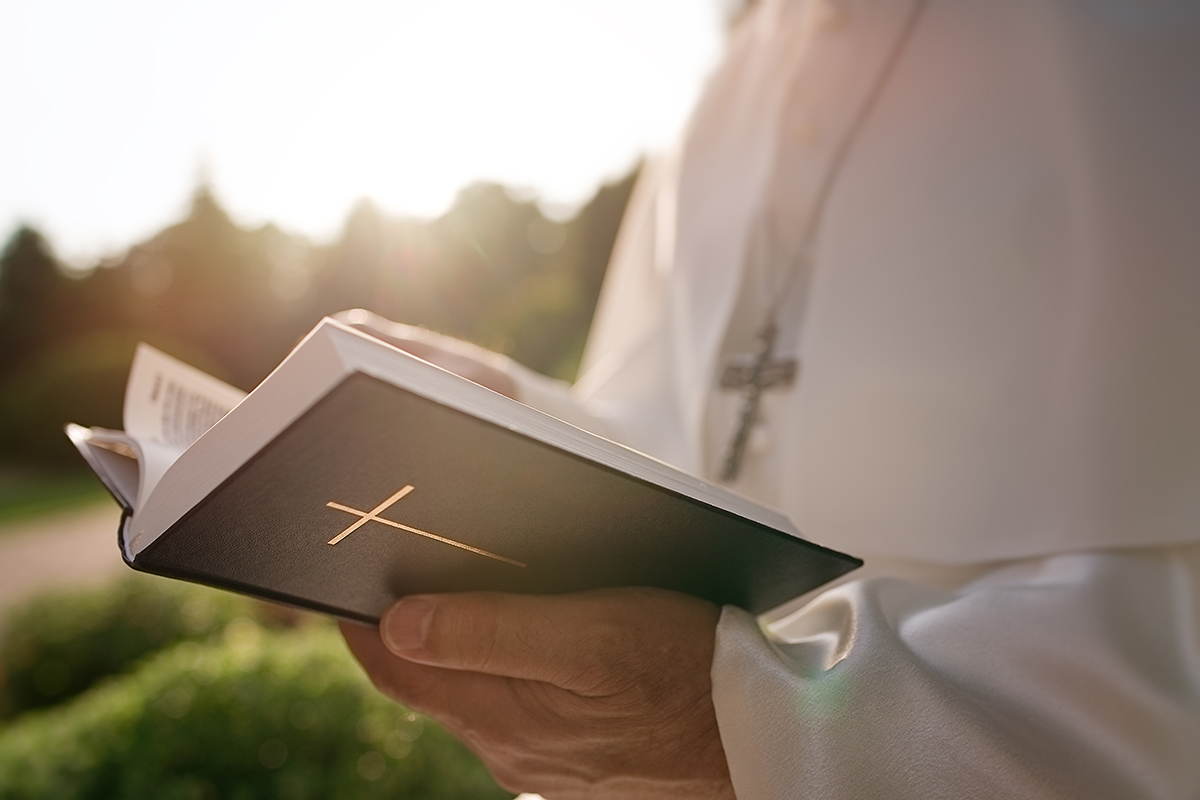
Question:
Last November, you answered a question about why Catholics don’t read the Bible more. I have a related but different question: how do I respond to people who say the Church’s teachings aren’t biblical?
Answer:
This is another great question, especially because it’s such a common one; many other Christians look at the Church’s teachings in light of their own reading of the Bible and wonder where those teachings came from, or even more, how Catholics can square their teachings with the Bible.
 By way of answering this question, I’d like to start with this point: the Catholic Church firmly and absolutely teaches that none of its doctrines contradict Scripture. That is, there are no Catholic teachings that go against the Bible.
By way of answering this question, I’d like to start with this point: the Catholic Church firmly and absolutely teaches that none of its doctrines contradict Scripture. That is, there are no Catholic teachings that go against the Bible.
Now, many other Christians will certainly disagree with that assertion, but it’s worth noting, because it highlights the importance of the Bible in the Church’s eyes. The Catholic Church recognizes the Bible as the uniquely-inspired Word of God, which is without error in what it teaches, and which nourishes the entire Church and the individual Christian. It would be impossible, then, for the Catholic Church to ever blithely dismiss the Bible and teach something that contradicts the Bible.
So, the Catholic Church deeply values the Bible. In fact, to have to state that almost feels like an obvious understatement, but unfortunately, many people are unaware of how much the Church cherishes Scripture and drinks deeply from its life-giving truths.
With that in mind, let’s continue our conversation about how to respond to this question.
When I’m talking with people who see a contradiction between the Church’s teachings and the Bible, I try to get specific and ask them to explain how, exactly, they think the teachings contradict the Bible. Oftentimes their view is based on a misunderstanding of what the Church teaches. In fact, many have observed that while there are millions of Christians who disagree with what they think the Catholic Church teaches, it’s a much smaller number who disagree with what the Church actually teaches. We’ve touched on some of these instances in previous columns. For example, the claim that the Catholic practice of praying to Mary contradicts the Bible is based on the false idea that Catholics worship Mary.
But we can go beyond simply saying Church teachings don’t contradict the Bible. The deeper truth is that the Church’s teachings are the most biblical of Christian doctrines. There have been countless Christians—many of them pastors or professors—who, upon examining Catholic teaching more deeply and objectively, found them to be not only in accord with Scripture, but also to be deeply rooted in the Bible.
Marian devotion is a great example. Many Christians, Catholic and otherwise, are unaware of the deep biblical roots of the Catholic practice of approaching Mary in order to more deeply approach her Son. When we are attentive to all of Scripture, we find this practice has ancient biblical roots.
In brief, we see in the Old Testament, the most important woman in the kingdom of Israel was often not the king’s wife, but his mother. She was the one regarded as the queen, not his wife. The “Queen Mother” served as a counsellor to the king and as an intercessor for those who sought his favor. And of course, Jesus is the King of Israel and indeed of the universe, and just as in the Old Testament, today his “subjects” are invited to approach him more deeply by way of his mother, the Queen Mother, Mary.
Another example is the role of Peter and his successors, the popes. In Matthew 16:19, Jesus gives Peter the keys to the kingdom. For the reader who again is aware of and attentive to the entirety of the Bible, this calls to mind an important role in the kingdom of Israel: that of the prime minister. For example, in Isaiah 22, we read about Eliakim, who acts on behalf of the king to oversee the administrative affairs of the kingdom, symbolized by the giving of keys. Not only that, but we read there that Eliakim will be a father to the people. So, too, will Peter and his successors (the popes, “papa”) govern the new Israel, the Church, on behalf of Christ the King.
 These are just two of the countless examples in which we find not merely the absence of contradiction between Church doctrine and the Bible, but in fact that Church doctrine comes from the Bible and hence is essentially synonymous with biblical teaching.
These are just two of the countless examples in which we find not merely the absence of contradiction between Church doctrine and the Bible, but in fact that Church doctrine comes from the Bible and hence is essentially synonymous with biblical teaching.
Be sure to check out the additional resources at sfcatholic.org/answer. If you have a question you need an answer to, email rkranz@sfcatholic.org.
Chris Burgwald holds a doctorate in theology and is the director of discipleship formation for the Diocese of Sioux Falls.


